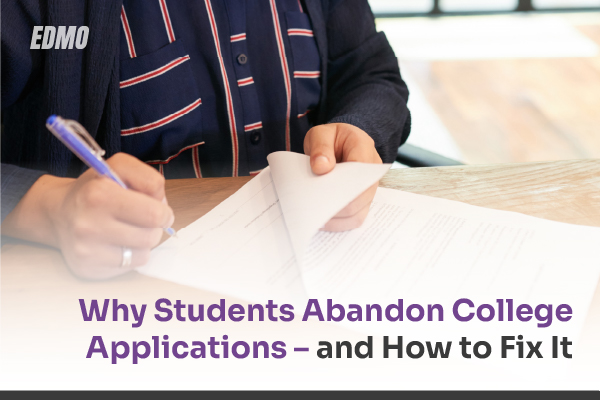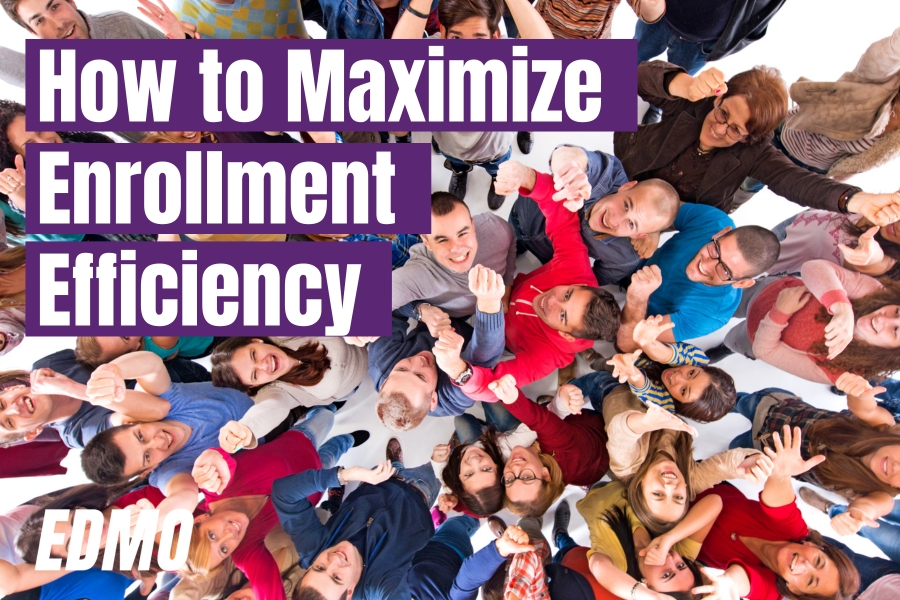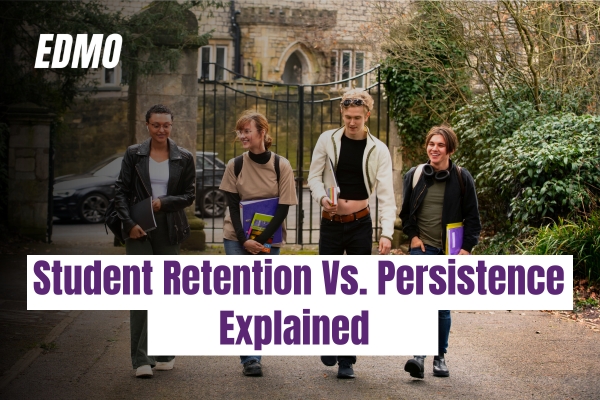Bureaucracy, long lines, and endless telephone hold times have long been a hallmark of the university experience. Students often face outdated teaching materials, aging technology, and sometimes lackluster engagement from instructors. But when it comes to admissions, there’s more to it than simply enrolling students.
To effectively engage, retain, and graduate students—especially first-generation and nontraditional ones—universities must be responsive and attentive to the needs of students and families. This isn’t just about offering good customer service; it’s about providing real human service that builds relationships and fosters trust.
Effective communication during admissions plays a critical role in making the entire experience smoother, more engaging, and ultimately more successful. Here are some proven strategies to enhance your communication with students and families during this crucial time.
Personalize and Tailor Communication
Today’s students expect more than generic messages; they want personalized interactions that show you understand their needs and goals.
- Use their names: Whether in emails, texts, or even videos, personalizing your communication makes students feel seen and valued.
- Acknowledge their achievements: Recognizing a student’s accomplishments fosters a sense of connection and reinforces their desire to be part of your community.
- Understand cultural context: Tailor your communication to align with the student’s background, ensuring it resonates on a deeper level.
Example: When a student is accepted into your business program, share stories from alumni who have succeeded in similar careers, giving the student a preview of their future at your institution.
In fact, research from Comm100’s 2019 Live Chat Benchmark Report reveals that personalized interactions can significantly boost satisfaction. The report found that customer satisfaction across various industries increased by 2.5% in 2018, reaching 83.1%. This trend highlights the growing demand for customized communication, a need that students and families also expect from universities.
Maintain Transparency and Clarity
Being clear and honest with families goes a long way in building trust. They want to understand your admission criteria, deadlines, financial aid processes, and program outcomes without confusion.
- Explain the process: Share your institution’s admission policies in straightforward terms and provide clear timelines.
- Simplify complex topics: Use visual tools like infographics or videos to break down topics such as financial aid or program requirements, making it easier to digest.
Being transparent not only eases anxiety but also reinforces your commitment to student success. Clear communication ensures that families don’t feel overwhelmed or left in the dark.
Utilize Multiple Perspectives
The admissions office doesn’t have to handle communication on its own. By involving different voices, you add depth and authenticity to your outreach.
- Alumni stories: Alumni can offer valuable insights into their admissions experience and how they succeeded at your institution.
- Parents’ perspectives: Parents of current students can provide reassurance to prospective families, sharing their experiences.
- Student testimonials: Current students can share what life on campus is truly like, helping to humanize your messages and create genuine connections.
Example: A virtual panel with alumni, current students, and parents can help build a broader, more authentic connection with your audience.

Foster Two-Way Engagement
Admissions shouldn’t be a one-sided conversation. By encouraging dialogue, you invite students and families to be active participants, building a stronger relationship.
- Seek feedback: Use surveys or quick polls to understand students’ preferences and address any concerns they might have.
- Host interactive events: Live Q&As or virtual campus tours let students ask questions in real time, creating an engaging, dynamic experience.
- Build online communities: Creating forums where prospective students can connect with current students fosters a sense of belonging before they even step foot on campus.
Offering choices for how students prefer to receive updates—be it via email, text, or phone—also demonstrates attentiveness to individual needs.
With mobile communication on the rise, institutions should be prepared to meet students where they are. In 2018, nearly 52% of chat queries were initiated on mobile devices, up almost 8% from 2017. It’s clear that students expect instant, mobile-friendly access to information.
Provide Ongoing Support
Communication shouldn’t stop after the acceptance letter. The journey to enrollment involves many crucial steps, and consistent support is necessary to guide families through the process.
- Follow up regularly: Keep families informed about next steps, orientation, housing, and other important milestones.
- Be responsive: Ensure your admissions team is accessible and responsive to any questions or concerns that arise.
- Provide additional resources: Share helpful resources, such as tips for adjusting to campus life or financial planning guides.
Remember: Prompt follow-ups and clear responses help to solidify trust and create a positive experience for families throughout the enrollment process.
Leverage AI for Efficiency and Time Savings
With increasing demands on admissions teams, leveraging AI tools like EDMO can streamline communication, saving counselors significant time and effort.
- Automate communication: EDMO allows you to send personalized, automated messages, reducing the time counselors spend on repetitive tasks.
- Track interactions: EDMO monitors engagement and flags high-priority responses, enabling counselors to focus their time where it’s most needed.
- Simplify follow-ups: Automated reminders for deadlines, meetings, or application updates ensure that no student or family falls through the cracks.
AI tools like EDMO can take care of much of the routine communication, allowing your team to focus on building meaningful relationships with students. This reflects the growing role of automation—research shows that 59% of all chat interactions in 2018 involved chatbots, with nearly 27% being fully handled by AI, without the need for human intervention.
Additionally, Business leaders say chatbots have increased sales by 67% on average.
Final Thoughts
Effective communication is not just about providing information—it’s about creating genuine connections and making the admissions process more personal and engaging. By personalizing messages, diversifying voices, fostering two-way communication, and leveraging AI, universities can significantly enhance the admissions experience. With this approach, the process becomes less about bureaucracy and more about building lasting relationships that inspire confidence and excitement in students and families alike.
That’s where EDMO steps in. Our AI-powered solution transforms the admissions process by seamlessly integrating personalization, efficiency, and insight. From matching students to the right institutions to streamlining communication and decision-making, EDMO empowers universities to deliver a tailored, engaging experience at scale. By simplifying the journey for both students and admissions teams, EDMO helps create stronger connections, happier students, and a more vibrant, inclusive campus community.
Also read: How AI Is Transforming Higher Education
How AI Can Mitigate Bias to Advance Diversity and Inclusion in Higher Education
How can student success coaches help your students succeed?
How can technology help in higher education marketing?







